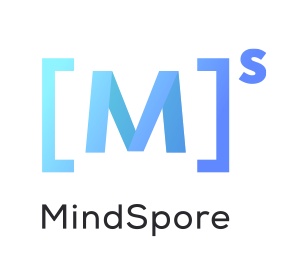A computing platform, digital platform, or software platform is the infrastructure on which software is executed. While the individual components of a computing platform may be obfuscated under layers of abstraction, the summation of the required components comprise the computing platform.

Christopher Arthur Lattner is an American computer scientist and creator of LLVM, the Clang compiler, the Swift programming language and the MLIR compiler infrastructure.
The Android Package with the file extension apk is the file format used by the Android operating system, and a number of other Android-based operating systems for distribution and installation of mobile apps, mobile games and middleware. A file using this format can be built from source code written in either Java or Kotlin.

EMUI is an interface based on Android developed by Chinese technology company Huawei, used on the company's smartphones primarily globally.
EulerOS is a commercial Linux distribution developed by Huawei based on Red Hat Enterprise Linux to provide an operating system for server and cloud environments. Its open-source community version is known as openEuler, a multi-kernel project incubated and operated by the OpenAtom Foundation; the source code of openEuler was released by Huawei at Gitee on December 31. EulerOS itself officially launched September 23, 2021 alongside to openEuler publicly on September 25, 2021.
HarmonyOS (HMOS) is a distributed operating system developed by Huawei for smartphones, tablets, smart TVs, smart watches, personal computers and other smart devices. It has a microkernel design with single framework: the operating system selects suitable kernels from the abstraction layer in the case of devices that use diverse resources.

Huawei Mobile Services (HMS) is a collection of proprietary services and high level application programming interfaces (APIs) developed by Huawei Technologies Co., Ltd. Its hub known as HMS Core serves as a toolkit for app development on Huawei devices. HMS is typically installed on Huawei devices on top of running HarmonyOS operating system, and on its earlier devices running the Android operating system with EMUI including devices already distributed with Google Mobile Services. Alongside, HMS Core Wear Engine for Android phones with lightweight based LiteOS wearable middleware app framework integration connectivity like notifications, status etc.

Celia is an artificially intelligent virtual assistant developed by Huawei for their latest HarmonyOS and Android-based EMUI smartphones that lack Google Services and a Google Assistant. The assistant can perform day-to-day tasks, which include making a phone call, setting a reminder and checking the weather. It was unveiled on 7 April 2020 and got publicly released on 27 April 2020 via an OTA update solely to selected devices that can update their software to EMUI 10.1.
The version history of the HarmonyOS distributed operating system began with the public release of the HarmonyOS 1.0 for Honor Vision smart TVs on August 9, 2019. The first expanded commercial version of the Embedded, IoT AI, Edge computing based operating system, HarmonyOS 2.0, was released on June 2, 2021, for phones, tablets, smartwatches, smart speakers, routers, and internet of things. Beforehand, DevEco Studio, the HarmonyOS app development IDE, was released in September 2020 together with the HarmonyOS 2.0 Beta. HarmonyOS is developed by Huawei. New major releases are announced at the Huawei Developers Conference (HDC) in the fourth quarter of each year together with the first public beta version of the operating system's next major version. The next major stable version is then released in the third to fourth quarter of the following year.

OpenHarmony (OHOS), also known as OH by shorter acronym, is a family of open-source distributed operating systems based on HarmonyOS derived from LiteOS, donated the L0-L2 branch source code by Huawei to the OpenAtom Foundation. Similar to HarmonyOS, the open-source distributed operating system is designed with a layered architecture, consisting of four layers from the bottom to the top: the kernel layer, system service layer, framework layer, and application layer. It is also an extensive collection of free software, which can be used as an operating system or in parts with other operating systems via Kernel Abstraction Layer subsystems.
OpenAtom Foundation, a non-profit legal entity registered with China's Ministry of Civil Affairs, is the first foundation for open-source software in China. It was established in June 2020 with the support of the Ministry of Industry and Information Technology and initiated jointly by Alibaba, Baidu, Huawei, Inspur, Qihoo 360, Tencent, China Merchants Bank and other companies for operation and marketing services of open source projects.
The HarmonyOS App Pack or the App file, identified with the file extension ".app", serves as the file format used by the HarmonyOS operating system. It functions as a native HarmonyOS app for distribution and installation through Huawei AppGallery, or for distribution through Huawei Ability Gallery in respect of installation-free apps under both former classic dual-framework and current HarmonyOS NEXT system of unified OpenHarmony app framework. The App file is also used by a number of other open source HarmonyOS-based operating systems such as OpenHarmony and Oniro OS-based operating systems for distribution and installation of applications, video games and middleware. Including non OpenHarmony-based operating systems, such as GNU Linux-based Unity Operating System that supports the app file format.
HarmonyOS NEXT is a proprietary distributed operating system and a major iteration of HarmonyOS, developed by Huawei to support only HarmonyOS native apps. The operating system is primarily aimed at software and hardware developers that deal directly with Huawei. It does not include Android's AOSP core and is incompatible with Android applications.
Huawei Ark Engine is a conglomerate of proprietary application programming interfaces (APIs) for handling tasks related to system and multimedia, especially game programming and video, on HarmonyOS and OpenHarmony platform such as software graphics engine stack, ArkGraphics 2D for 2D computer graphics, 2D Drawing high-performance and ArkGraphics 3D graphics engine stack that support standard OpenGL and Vulkan backend, interactive graphics with ArkUI binding support, multimedia engine for audio and video, memory engine, scheduling engine, storage engine and low power consumption engine.
ArkGraphics 3D is an open source, 3D graphic stack developed by Huawei as a subset of Ark Engine for HarmonyOS and OpenAtom OpenHarmony. The engine layer includes two modules, such as 2D graphics library and 3D graphics engine with OpenGL with OpenGL Shading Language, WebGL and Vulkan as render service backend. The 2D graphics library provides the underlying API for 2D graphics rendering, and supports the underlying capabilities of graphics rendering and text rendering for ArkUI. AGP Engine as a component of ArkUI, it provides the 3D drawing capability of the system.
ArkUI is a declarative based user interface framework for building user interfaces on native HarmonyOS, OpenHarmony alongside Oniro OS applications developed by Huawei for the ArkTS and Cangjie programming language.
Ark Compiler, also known as ArkCompiler, is a unified compilation and runtime platform that supports joint compilation and running across programming languages and chip platforms, also operating systems of open-source OpenHarmony, Oniro OS, alongside proprietary HarmonyOS with single core system HarmonyOS NEXT included on native APP in Event-driven programming in a unified development environment and formerly built for Android-based EMUI for Huawei smartphones and tablets with HMS-enabled apk apps on AppGallery that improves app performance. It supports a variety of dynamic and static programming languages such as JS, TS, and ArkTS. It is the compilation and runtime base that enables OpenHarmony, Oniro OS alongside HarmonyOS NEXT to run on multiple device forms such as smart devices, mobile phones, PCs, tablets, TVs, automobiles, and wearables. ArkCompiler consists of two parts, compiler toolchain and runtime.
ArkTS is a high-level general-purpose, multi-paradigm, compiled, declarative, static type programming language developed by Huawei which is a superset of open-source TypeScript, in turn a superset of JavaScript formerly used in July 2022 HarmonyOS 3.0 version, alongside its evolved precursor, extended TypeScript (eTS) built for HarmonyOS development as a shift towards declarative programming. ArkTS compiles to machine code via its ahead-of-time compilation Ark Compiler. ArkTS was first released in September 30, 2021 on OpenHarmony, and the ArkTS toolchain has shipped in DevEco Studio since version 3.1, released in 2022. Since, OpenHarmony 4.0 release on October 26, 2023, ArkTS APIs has been added to the open source community to contribute.

MindSpore is a open-source software framework for deep learning, machine learning and artificial intelligence developed by Huawei.
GaussDB is a proprietary enterprise-grade distributed AI-native relational database management system developed by Huawei which launched on May 15, 2019. It's designed for high performance and scalability, making it suitable for handling large data across servers.





